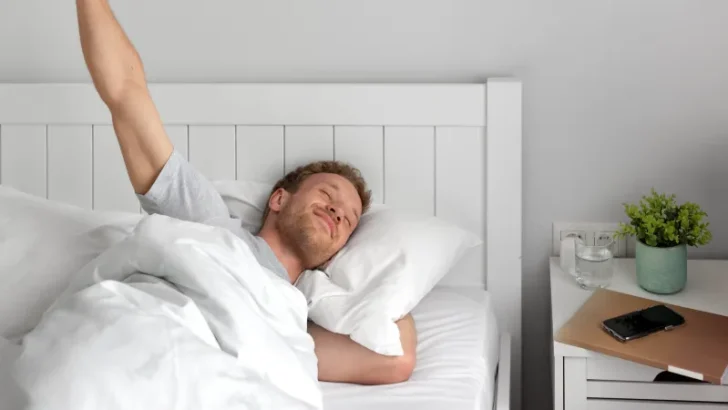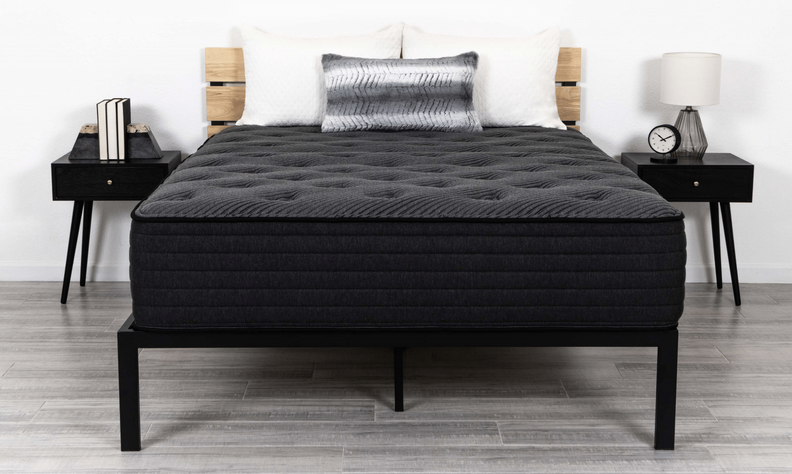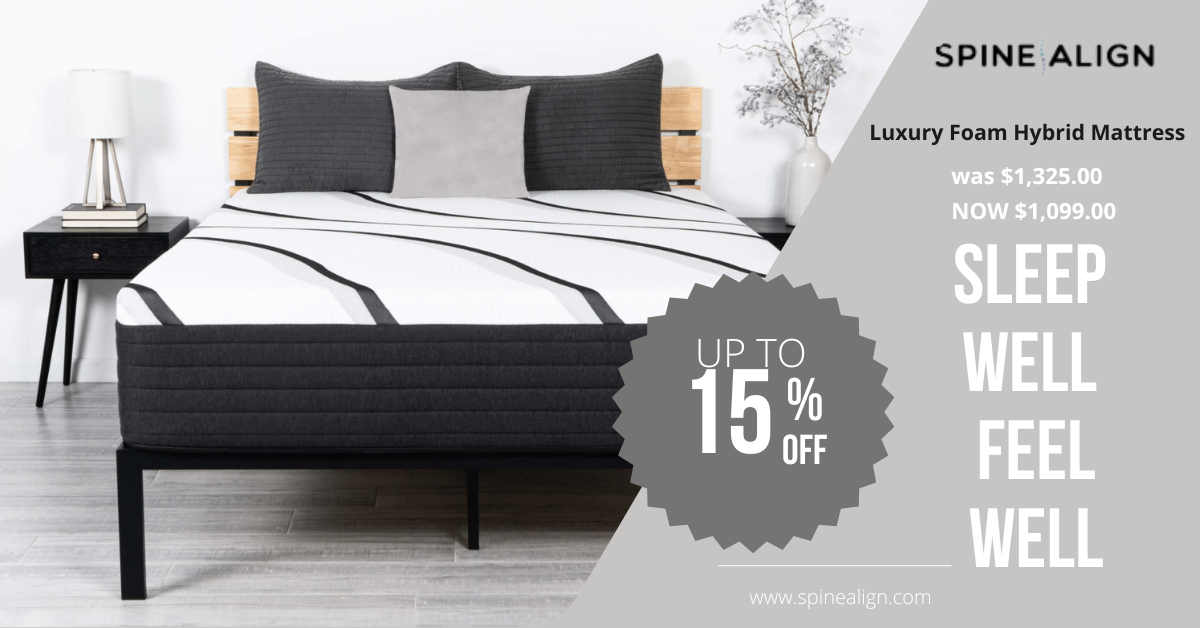Disclosure: This post may contain affiliate links, meaning we get a commission if you decide to make a purchase through our links, at no cost to you. Please read our disclosure for more info.
In our fast-paced modern world, it’s not uncommon for people to struggle with sleep due to their busy lifestyles. The demands of work, family, and daily responsibilities often take precedence, leaving sleep as an afterthought. However, prioritizing restful sleep is crucial for overall well-being, and exploring sleep health solutions is essential. In this article, we’ll explore how to maintain healthy sleep habits even in the midst of a busy lifestyle.
In This Post:
Understanding the Importance of Sleep
Before we delve into practical tips for improving sleep in a busy life, let’s first understand why sleep is so vital:
The Science Behind Sleep
- The Sleep Cycle: Sleep consists of different stages, including REM (Rapid Eye Movement) and non-REM sleep. Understanding these cycles can help us optimize sleep.
- Brain Restoration: Sleep is when our brains consolidate memories, process emotions, and repair themselves, ensuring we wake up mentally refreshed.
Challenges of a Busy Lifestyle
Living a busy life often means facing unique sleep challenges:
- Time Constraints: Finding time to sleep amidst a packed schedule can be challenging.
- Stress and Anxiety: The hustle and bustle of life can lead to heightened stress and anxiety, making it difficult to fall asleep.
- Inconsistent Routines: Irregular work hours or travel schedules can disrupt our sleep routines.
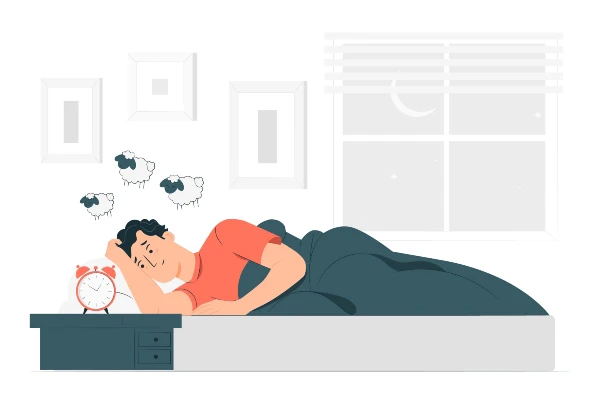
Image by storyset on Freepik
Prioritizing Sleep in a Busy Life
Now that we understand the importance of sleep and the challenges of a busy lifestyle, let’s explore practical sleep health solutions and strategies for prioritizing restful sleep.
Establishing a Consistent Sleep Schedule
- Setting a Routine: Going to bed and waking up at the same times daily helps regulate your body’s internal clock.
- Weekend Adjustments: Try to maintain your sleep schedule on weekends to minimize disruptions.
Creating a Relaxing Bedtime Ritual
- Wind Down: Engage in calming activities like reading or gentle stretching before bed.
- Limit Screen Time: Reduce exposure to screens (phones, tablets, TVs) before bedtime to improve sleep quality.
Managing Stress and Anxiety
- Mindfulness Meditation: Practice mindfulness exercises to calm the mind and reduce stress.
- Breathing Techniques: Deep breathing exercises can help relax the body and promote better sleep.
Optimizing Your Sleep Environment
- Dark and Cool: Ensure your bedroom is dark and kept at a comfortable, cool temperature for better sleep.
- Comfortable Mattress and Bedding: Invest in a comfortable mattress and pillows that suit your preferences.
- Power Naps: Utilize short power naps during the day to recharge without interfering with nighttime sleep.
- Prioritizing Self-Care: Recognize that adequate sleep is essential for your well-being and success.
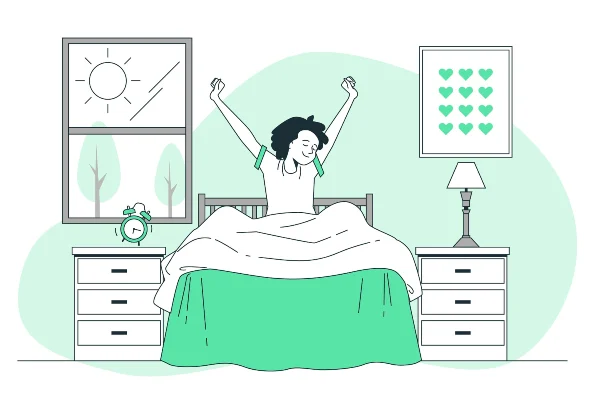
Image by storyset on Freepik
Choosing the Right Mattress
When it comes to prioritizing sleep, one of the most crucial factors is your choice of mattress. A quality mattress can make a significant difference in the quality of your restful slumber, and it’s a key element of sleep health solutions. Among the many options available, our top pick for a mattress that promotes healthy sleep and spine alignment is the SpineAlign mattress.
Why Choose SpineAlign?
- Optimal Support: The SpineAlign mattress is designed to provide excellent support for your spine, ensuring proper alignment throughout the night.
- Comfortable Sleep Surface: With a combination of memory foam and innerspring coils, it offers a balance of comfort and support, making it ideal for all types of sleepers.
- Pressure Relief: The mattress is engineered to relieve pressure points, reducing the risk of waking up with aches and pains.
- Breathable and Cool: SpineAlign incorporates cooling technologies to regulate temperature and keep you comfortable all night long.
- Quality and Durability: Made with premium materials, SpineAlign mattresses are built to last, providing years of restful sleep.
Conclusion
In a busy lifestyle, it’s easy to neglect sleep, but doing so comes at a cost to our health and productivity. By understanding the science of sleep, managing stress, and creating a sleep-conducive environment, you can make restful sleep a priority even in the busiest of lives.
FAQs
How Many Hours of Sleep Do I Need Each Night?
On average, adults should aim for 7-9 hours of sleep per night.
Can I Catch Up on Lost Sleep During the Weekends?
While it’s possible to recover some lost sleep, it’s best to maintain a consistent sleep schedule.
What Should I Do If I Can’t Fall Asleep Due to a Busy Mind?
Try relaxation techniques like meditation or progressive muscle relaxation to calm your mind.
Is It Okay to Use Sleep Aids for Better Sleep?
Consult with a healthcare professional before using sleep aids, as they may have side effects.
How Can I Manage Jet Lag When My Schedule Involves Frequent Travel?
Gradually adjust your sleep schedule to align with your destination’s time zone, and stay hydrated during travel.

